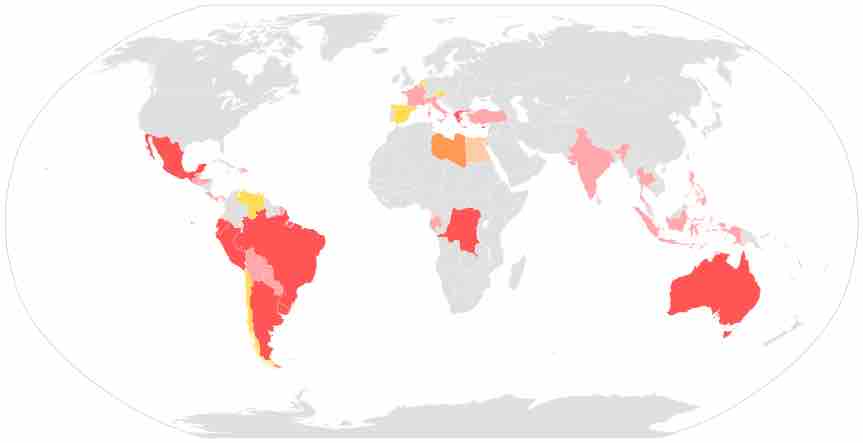Introduction
Institutional factors have a significant impact on voter turnout. Rules and laws are also generally easier to change than attitudes, so much of the work done on how to improve voter turnout looks at these factors. Making voting compulsory has a direct and dramatic effect on turnout. Simply making easier nomination rules for candidates is believed to increase voting. Conversely, adding barriers, such as a separate registration process, can suppress turnout. The salience of an election, the effect that a vote will have on policy, and its proportionality, how closely the result reflects the will of the people, are two structural factors that also are likely to have important effects on turnout.
Compulsory Voting
Compulsory voting is a system by which electors are obliged to vote in elections or attend a polling place on voting day. If an eligible voter does not attend a polling place, he or she may be subject to punitive measures, such as fines, community service, or perhaps imprisonment if fines are unpaid or community service is not performed . Compulsory voting ensures a large voter turnout. This means a victorious candidate or party clearly represents a majority of the population, not just the politically motivated individuals who would vote without this requirement. This helps ensure that governments do not neglect people in sections of society who are less active politically. Victorious political leaders of compulsory systems may claim a higher degree of political legitimacy than those of non-compulsory systems with lower voter turnout. Political scientist Arend Lijphart writes that compulsory voting has been found to increase voting by 7-16% in national elections and by even more in local and provincial elections and elections to the European Parliament.

Map of Compulsory Voting Countries
Red: Compulsory voting, enforced. Pink: Compulsory voting, not enforced. Orange: Compulsory voting, enforced (only men). Light Orange: Compulsory voting, not enforced (only men). Yellow: the country had compulsory voting in the past.
Any compulsion affects the freedom of an individual, and the fining of recalcitrant non-voters is an additional impact on a potential recalcitrant voter. Voting may be seen as a civic right rather than a civic duty. While citizens may exercise their civil rights, they are not compelled to. Furthermore, compulsory voting may infringe on other rights. For example, most Jehovah's Witnesses believe that they should not participate in political events. Forcing them to vote ostensibly denies them their freedom of religious practice. In some countries with compulsory voting, Jehovah's Witnesses and others may be excused on these grounds. If however they are forced to go to the polling place, they still can use a blank or invalid vote.
Salience
Mark N. Franklin argues thatsalience, the perceived effect that an individual vote will have on how the country is run, has a significant effect on turnout. He presents Switzerland as an example of a nation with low salience. The nation's administration is highly decentralized, so that the federal government has limited powers. The government invariably consists of a coalition of parties, and the power wielded by a party is far more closely linked to its position relative to the coalition than to the number of votes it received. Important decisions are placed before the population in a referendum. Individual votes for the federal legislature are thus unlikely to have a significant effect on the nation, which probably explains the low average turnouts in that country.
Ease of Voting
Ease of voting is a factor in rates of turnout. In the United States and most Latin American nations, voters must go through separate voter registration procedures before they are allowed to vote. This two-step process quite clearly decreases turnout. U.S. states with no or easier registration requirements have larger turnouts. Other methods of improving turnout include making voting easier through improved access to polls—for example, through:
- increasing the number of possible voting locations
- lowering the average time voters have to spend waiting in lines
- extending voting hours
- requiring companies to give workers some time off on voting day
Other options include:
- more available absentee polling
- mail-in voting
- Internet voting
In other countries, like France, voting is held on the weekend, when most voters are away from work. Therefore, the need for time off from work as a factor in voter turnout is greatly reduced.